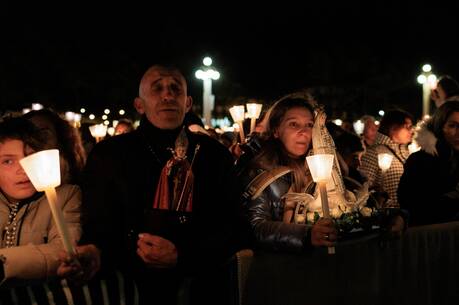A Reflection for Saturday of the Thirtieth Week in Ordinary Time
Find today’s readings.
“For everyone who exalts himself will be humbled, but the one who humbles himself will be exalted.” (Lk 14:11)
When my children were young, they watched “Sesame Street”enthralled with a neighborhood where, between gobbling up cookies and singing, lessons about being human were taught. The power of observation was a vital skill to develop, and so the song “One of these things is not like the other” challenged young viewers to notice patterns. In a grown-up version, we might say this skill is fundamental, because in discerning patterns there is the possibility of new meaning being revealed.
Why am I talking about “Sesame Street”? As I read today’s Scriptures, I heard that song in my head. I had noticed a repeated pattern: the admonition that exalting oneself is to be avoided, because it will inevitably lead to being humbled. This teaching must have been repeated often by Jesus’ friends. Luke includes it in two chapters (14 and 18), and Matthew does as well (23:12). Three times we are taught this identical phrase, which likely comes from a text preserving Jesus’ sayings that scholars hypothesize Luke and Matthew both knew. And yes, we repeat it too, because what it calls out is so recognizable. It’s all there: the obsessiveness with celebrity culture, the illusion of belonging by insisting on exclusivity, and the fool’s gold of consumerism and status. Put Luke’s Gospel in our time and the people in the story are taking selfies and elbowing one another out of the way in the futile popularity contest that is much of contemporary life.
Too many people will not give up the immediate seat of honor (profit) unless they can see what’s in it for them. How do we motivate them to do the right thing anyway?
But there is yet another pattern in the readings. This pattern discloses that neither Jesus, Paul nor the evangelists hold much hope that people’s fondness for thinking only of themselves is likely to subside any time soon; thus, they bend to meet them halfway. It’s not so much “If you can’t beat them, join them,” as it is “How do I put this so you might be motivated to do it?” There’s Paul, admitting that he’s willing to take the proclamation of the good news of Jesus from wherever it comes, even if it may come from “pretense” and from people motivated by “envy and rivalry” (Phil 1:15)! And then there’s Jesus, who doesn’t seem to expect his audience to make the leap into humility in one sitting, so he eases them into it by giving them a double incentive. First, the last thing they want: humiliation and “embarrassment.” Imagine being told to move to the lowest table! Then the thing that they do want: the possibility of reward. If you do the right thing and at least act humbly, then you might be singled out by the host for a place of honor! I don’t think Jesus is blind to the glaring contradiction in his story. He’s just practical; fake it ’til you make it.
I find this pattern, due cognizant of people’s limitations, inviting at a time when we need solutions to urgent problems. We simply don’t have time to wait for people to develop an ethical backbone. We need to save our common home now, and we need to be as realistic as Paul, Jesus, Luke and Matthew. Car companies can make lots of money if they sell us electric vehicles. Manufacturers can fill their coffers transitioning to energy-efficient technologies. Farmers can be rewarded for not using pesticides with good prices and healthy labeling. They will get what they want, and we might heal our planet a little in the process. Too many people will not give up the immediate seat of honor (profit) unless they can see what’s in it for them. How do we motivate them to do the right thing anyway?
Jesus explains that the inability to be repaid is the only way we can make real the gracious love of God, emphasizing his hope that people be truly selfless. While we work on that selflessness, maybe we can find a middle ground to accomplish the urgent things our world needs. Now. Even if, as Jesus says, it may start out being for the wrong reasons.








